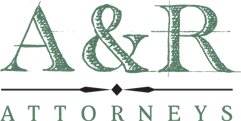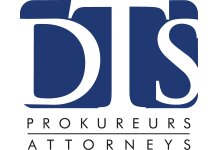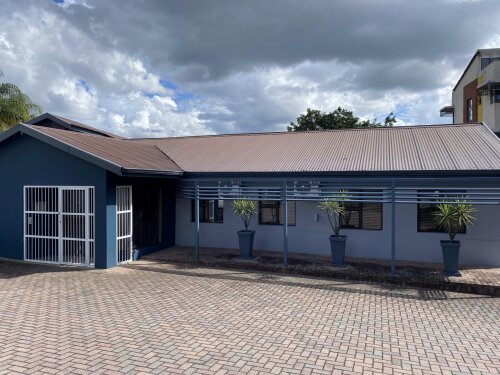Best Renewable & Alternative Energy Lawyers in Johannesburg
Share your needs with us, get contacted by law firms.
Free. Takes 2 min.
List of the best lawyers in Johannesburg, South Africa
About Renewable & Alternative Energy Law in Johannesburg, South Africa
Johannesburg, South Africa is embracing the shift towards renewable and alternative energy sources to address energy security, reduce carbon emissions, and promote sustainable development. Renewable and alternative energy refers to energy produced from sources that are naturally replenished, such as solar, wind, hydro power, biomass, and geothermal energy. Johannesburg's legal landscape is evolving to support these technologies, encourage investment, and ensure compliance with national and municipal regulations.
The legal framework governs how individuals, businesses, and developers can generate, supply, use, and distribute renewable energy. This includes licensing processes, compliance requirements, incentives, environmental standards, and grid connection procedures. Understanding these factors is key for anyone considering renewable or alternative energy projects in Johannesburg.
Why You May Need a Lawyer
There are various situations where seeking a lawyer with expertise in renewable and alternative energy law can be invaluable:
- Advising on compliance with local and national energy regulations
- Assisting in obtaining the required permits and licenses for energy projects
- Negotiating power purchase agreements and contracts with energy providers or buyers
- Handling land use, zoning, or environmental impact assessments related to energy installations
- Resolving disputes with utility companies, investors, or project partners
- Navigating incentives, government grants, or financial support schemes
- Protecting intellectual property related to new energy technologies
- Structuring private and public partnerships for large-scale developments
- Addressing consumer rights and grid connection issues for rooftop solar or small-scale projects
- Representing clients in administrative hearings or litigation connected to renewable energy endeavors
Local Laws Overview
The legal environment for renewable and alternative energy in Johannesburg is largely shaped by national statutes, municipal bylaws, and energy sector policies. Key aspects include:
- National Energy Act, 2008: Sets the principles for planning and development of energy supply and usage in South Africa, emphasizing efficiency and sustainability.
- Electricity Regulation Act, 2006: Regulates the electricity industry, including requirements for generation, distribution, and trading licenses through the National Energy Regulator of South Africa (NERSA).
- Renewable Energy Independent Power Producer Procurement Programme (REIPPPP): A national program encouraging private sector investment in renewable energy generation for grid supply.
- City of Johannesburg Bylaws and Policies: Local rules related to land use, building codes, environmental compliance, and grid connections for renewable energy systems.
- Environmental Legislation: Projects may require environmental impact assessments and must adhere to environmental management regulations under the National Environmental Management Act (NEMA).
- Feed-in Tariffs and Incentives: Mechanisms and incentives are available for renewable energy producers, especially for smaller installations such as rooftop solar.
Frequently Asked Questions
What kinds of renewable energy are commonly used in Johannesburg?
Solar energy, particularly rooftop solar photovoltaic systems, and bioenergy are among the most popular. There is also interest in small-scale wind and hydro solutions, especially for private and commercial use.
Do I need a license to generate renewable energy for personal use?
Small-scale embedded generation (less than 1 megawatt) typically requires registration with the local municipality and compliance with technical standards, but may not need a NERSA license. Larger projects usually require licensing.
Can I sell excess electricity from my solar panels back to the grid?
Yes, Johannesburg has mechanisms that allow consumers with approved and compliant systems to feed energy back into the municipal grid, subject to specific terms, application procedures, and sometimes tariffs.
What permits are needed to install a renewable energy system?
Depending on the size and type, you may need planning permission, environmental approvals, building permits, and electrical compliance certificates from the municipality and sometimes from NERSA.
Are there incentives for investing in renewable energy in Johannesburg?
Certain tax benefits, rebates, or grant programs may be available at national and municipal levels. These change periodically, so it's important to consult current government resources.
What happens if I use renewable energy without proper approval?
Operating without necessary approvals or licenses can lead to fines, forced removal or disconnection of the installation, and legal consequences for non-compliance.
Who regulates renewable energy in Johannesburg?
NERSA handles national regulation and licensing, while the City of Johannesburg enforces local bylaws, grid connection standards, and safety compliance.
Can businesses participate in large-scale renewable energy projects?
Yes, businesses can develop, finance, and operate larger renewable energy facilities, often as part of national programs like REIPPPP or via independent agreements with private offtakers.
How do environmental regulations affect renewable energy projects?
Most renewable energy projects must comply with environmental management laws and may require full environmental impact assessments based on their size and location.
How can a lawyer help with renewable energy legal issues?
A lawyer can guide clients through regulatory compliance, draft and review contracts, secure necessary permits, resolve disputes, advise on incentives, and represent clients in negotiations or court if needed.
Additional Resources
Several organizations and government bodies are available to provide information and assistance:
- National Energy Regulator of South Africa (NERSA): For licensing and regulatory information
- Department of Mineral Resources and Energy (DMRE): Policy development and incentives
- City of Johannesburg Energy Department: Local application processes and grid connection details
- South African Photovoltaic Industry Association (SAPVIA): Industry guidance on solar projects
- South African Wind Energy Association (SAWEA): Resources for wind power projects
- South African National Energy Development Institute (SANEDI): Research and technology advice
- Department of Environmental Affairs: Regulations on impact assessments and approvals
Next Steps
If you need legal assistance with a renewable or alternative energy matter in Johannesburg, consider the following steps:
- Outline your project or concern, including any current documentation or correspondence
- Research and identify lawyers or law firms with expertise in energy law, renewable energy, or environmental law in South Africa
- Schedule a consultation to discuss your specific needs, regulatory obligations, and potential legal solutions
- Ask about costs, timelines, and the lawyer's experience with similar issues or projects
- Ensure that you keep up to date with changing laws and policies by regularly checking official resources or working with a knowledgeable legal advisor
Lawzana helps you find the best lawyers and law firms in Johannesburg through a curated and pre-screened list of qualified legal professionals. Our platform offers rankings and detailed profiles of attorneys and law firms, allowing you to compare based on practice areas, including Renewable & Alternative Energy, experience, and client feedback.
Each profile includes a description of the firm's areas of practice, client reviews, team members and partners, year of establishment, spoken languages, office locations, contact information, social media presence, and any published articles or resources. Most firms on our platform speak English and are experienced in both local and international legal matters.
Get a quote from top-rated law firms in Johannesburg, South Africa — quickly, securely, and without unnecessary hassle.
Disclaimer:
The information provided on this page is for general informational purposes only and does not constitute legal advice. While we strive to ensure the accuracy and relevance of the content, legal information may change over time, and interpretations of the law can vary. You should always consult with a qualified legal professional for advice specific to your situation.
We disclaim all liability for actions taken or not taken based on the content of this page. If you believe any information is incorrect or outdated, please contact us, and we will review and update it where appropriate.

















